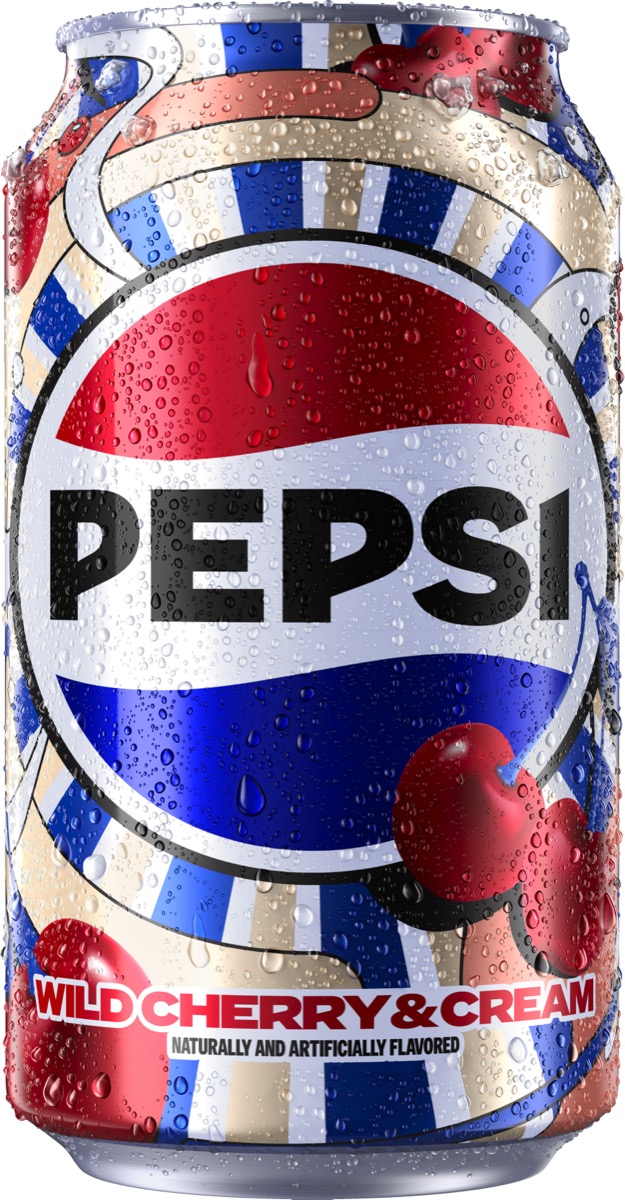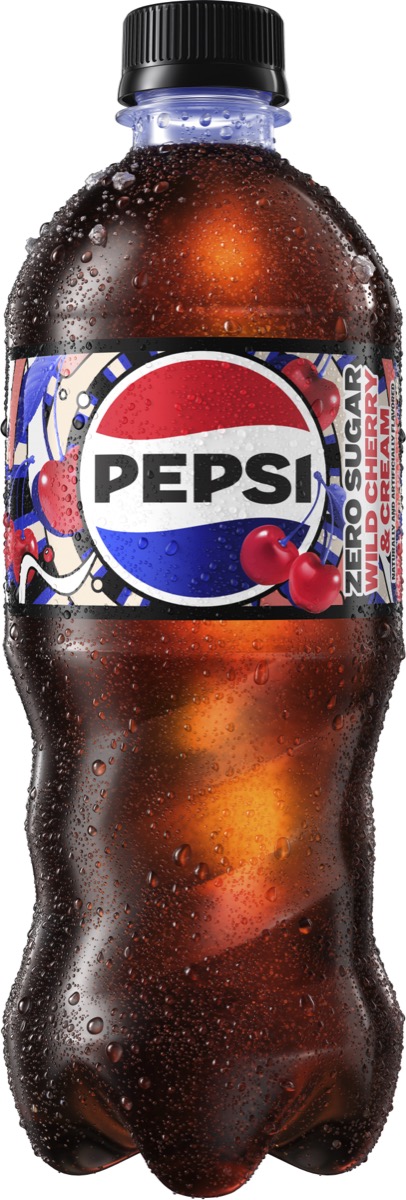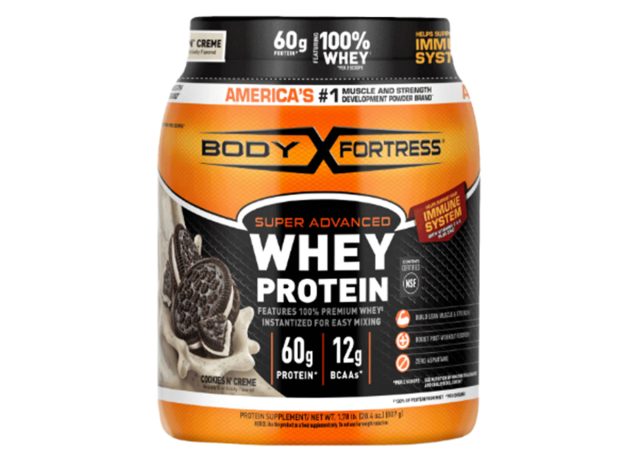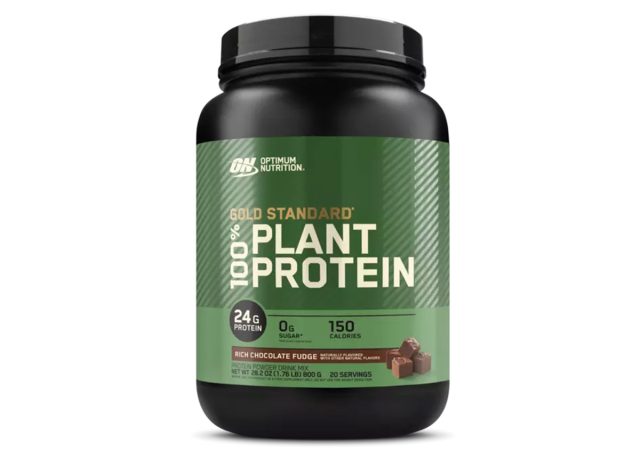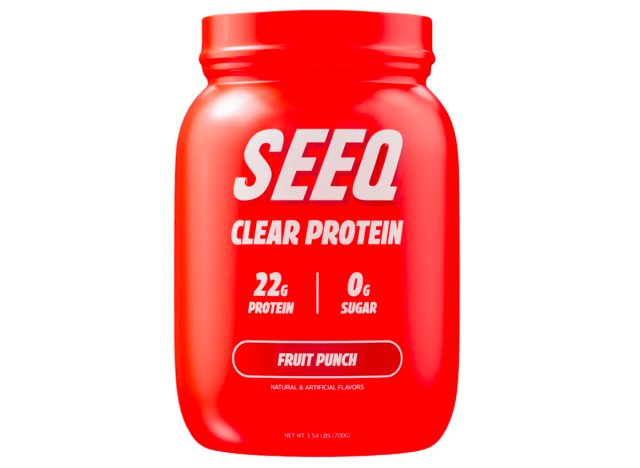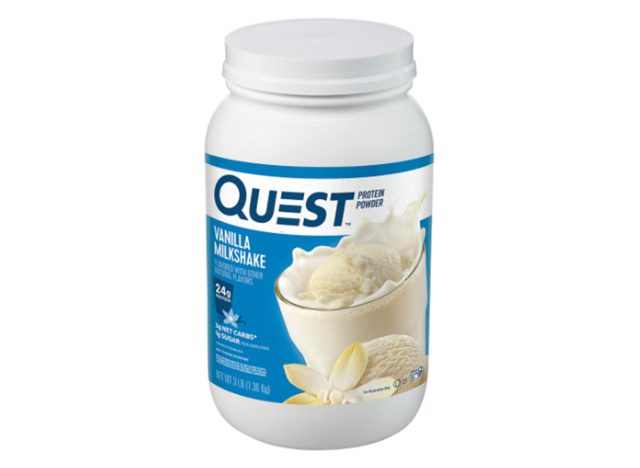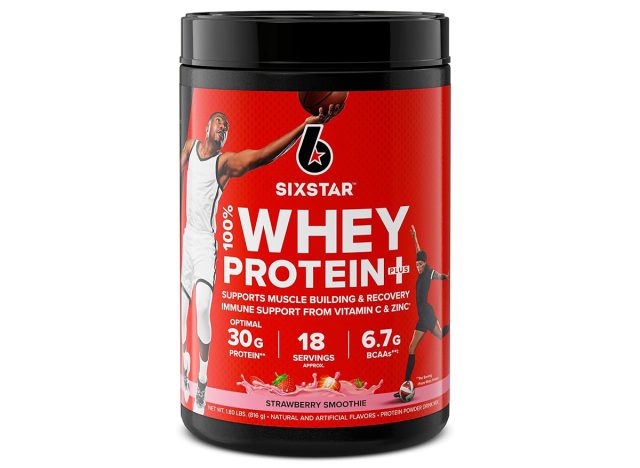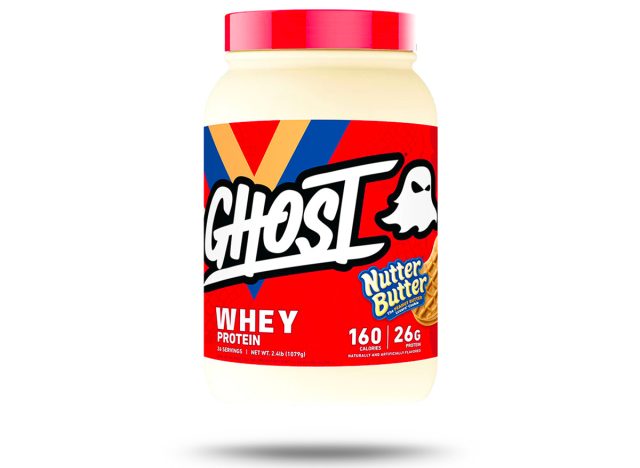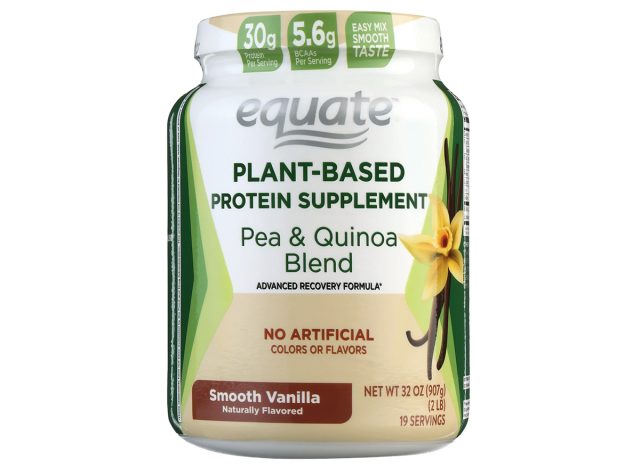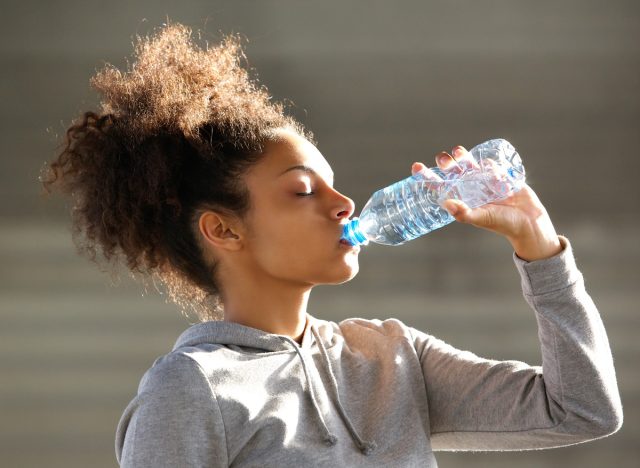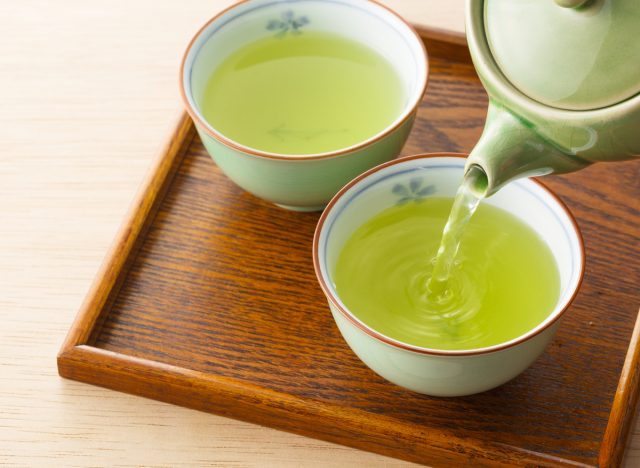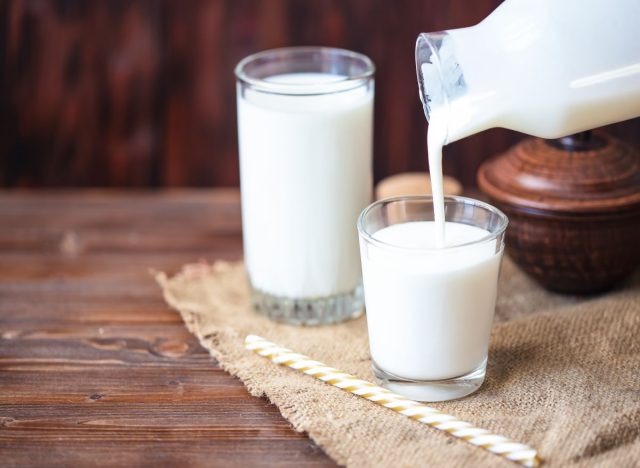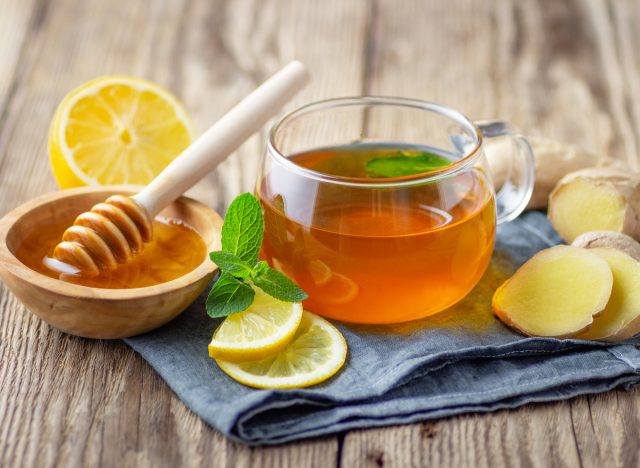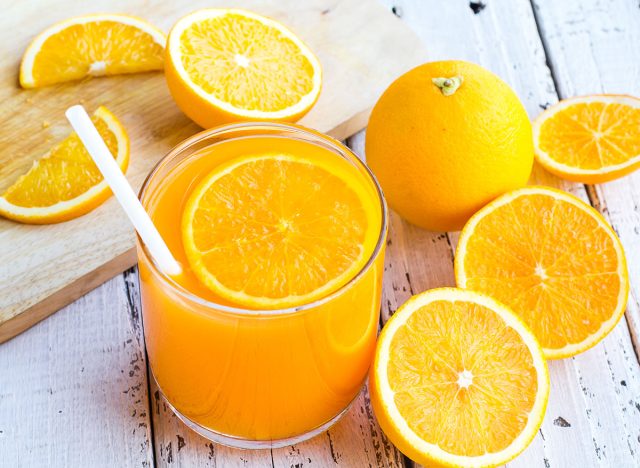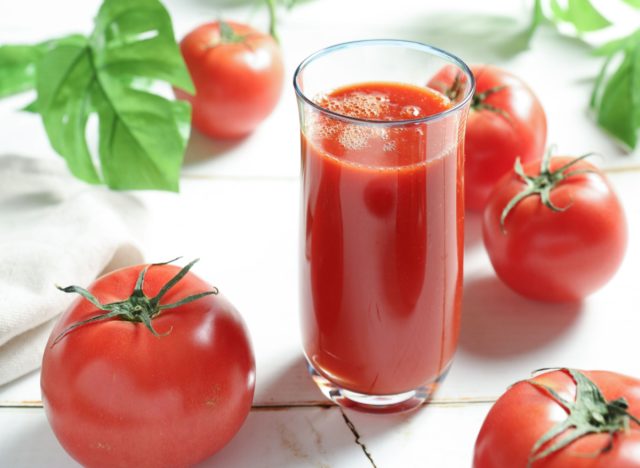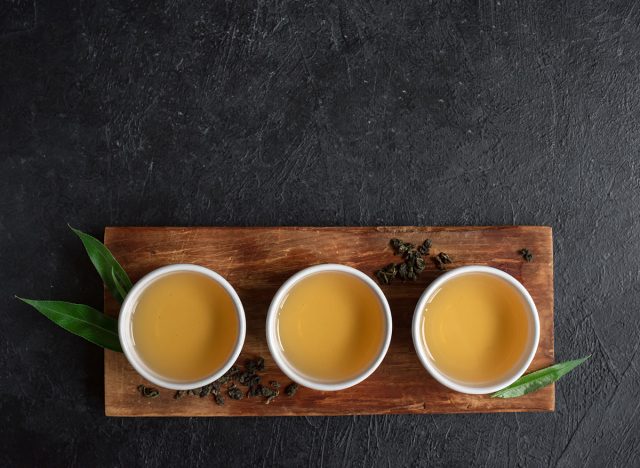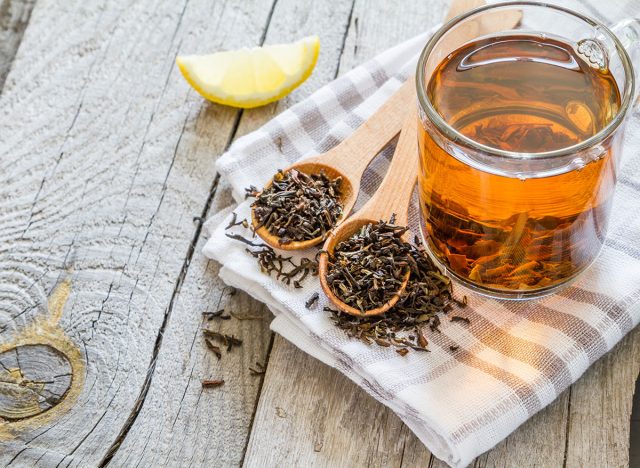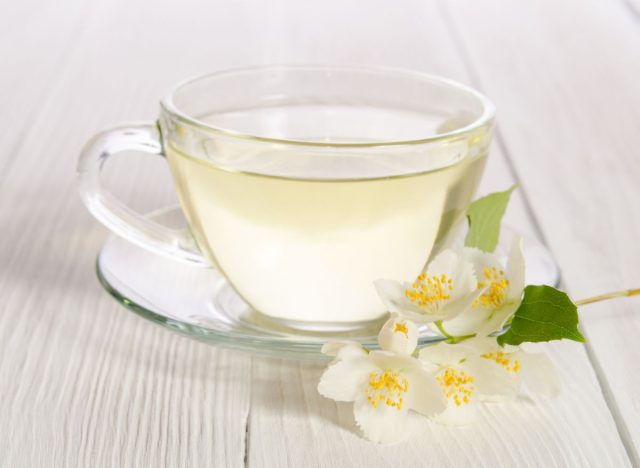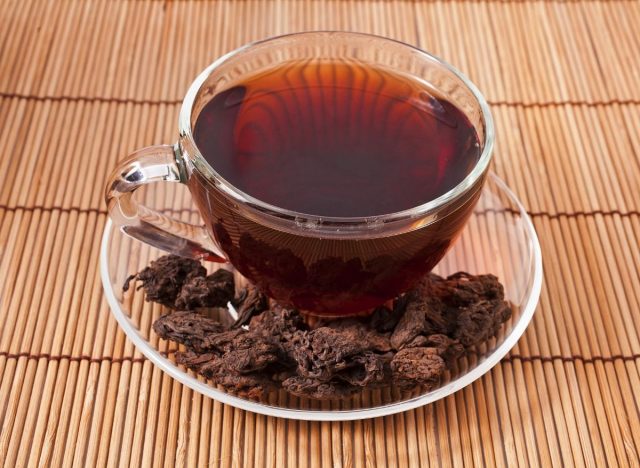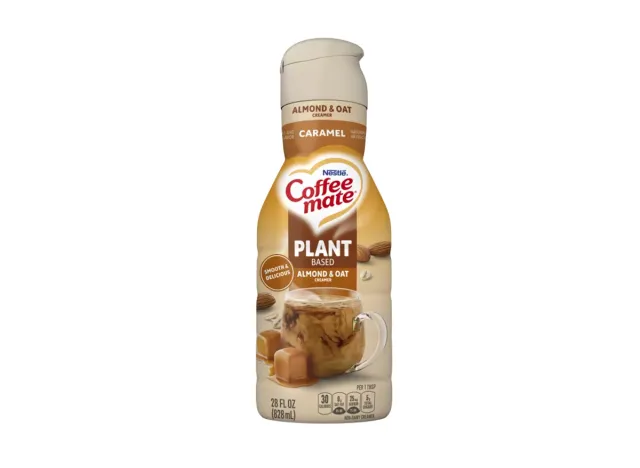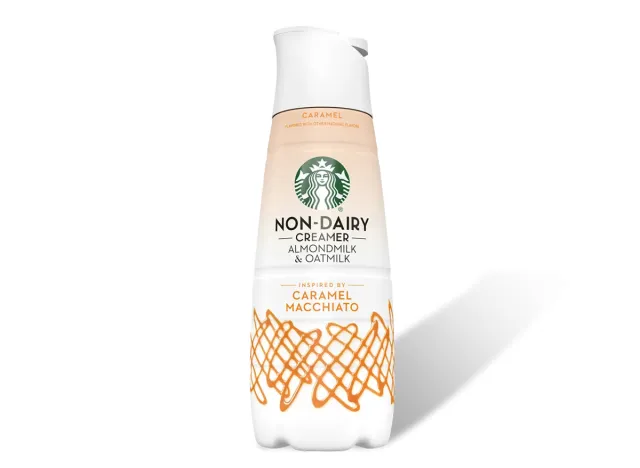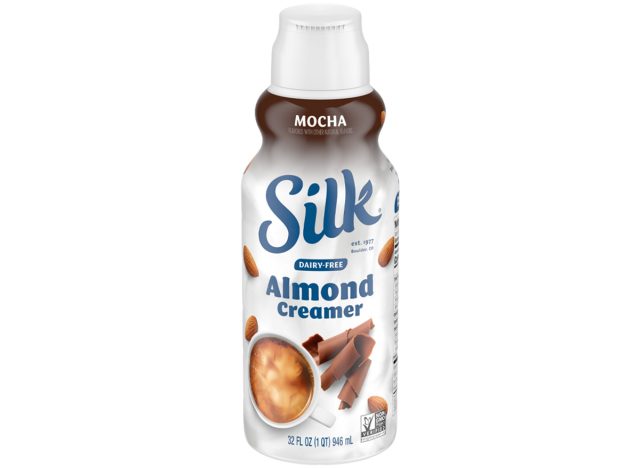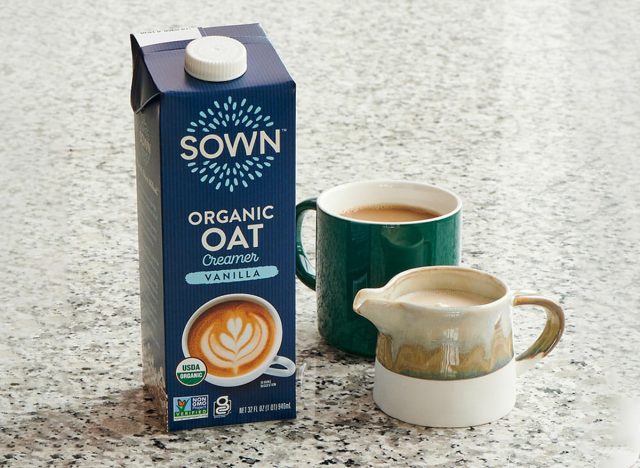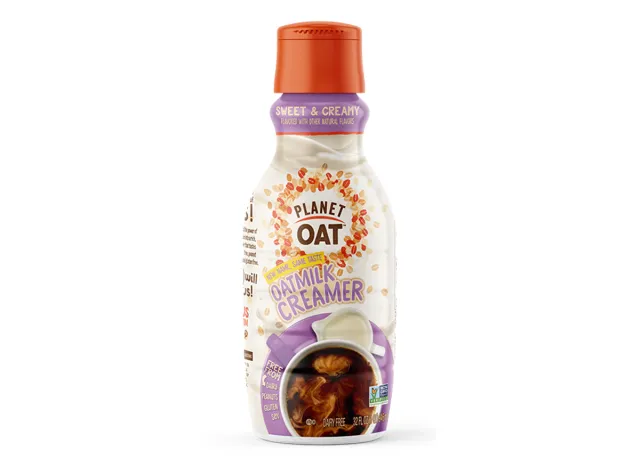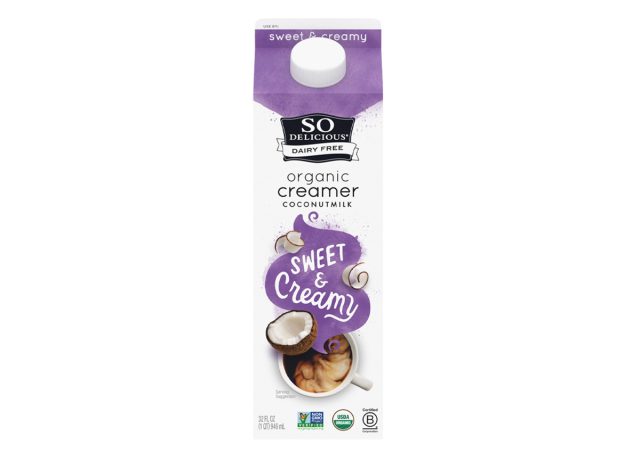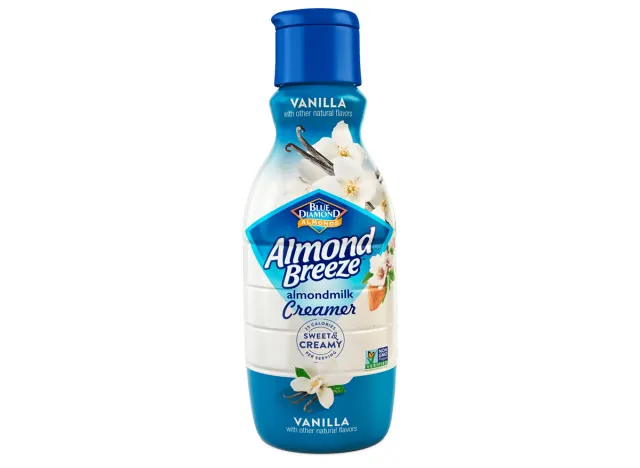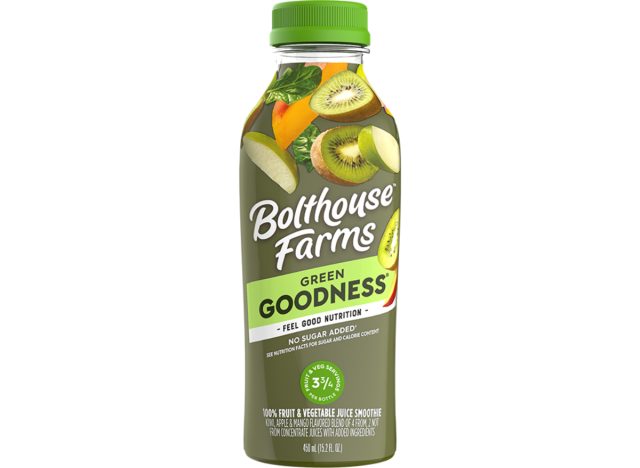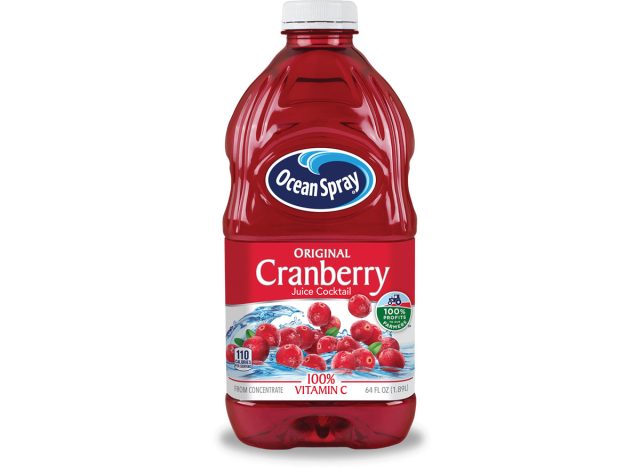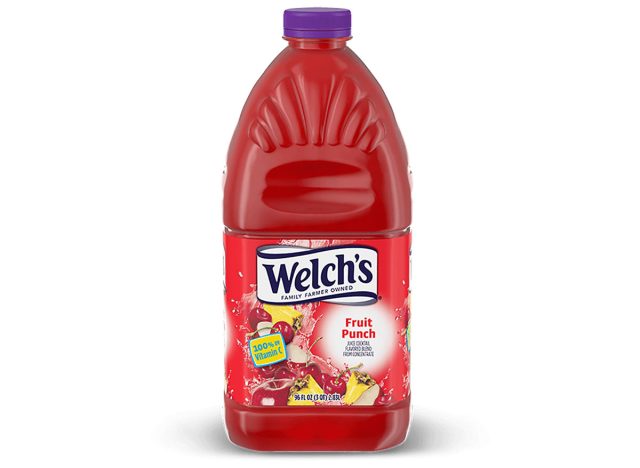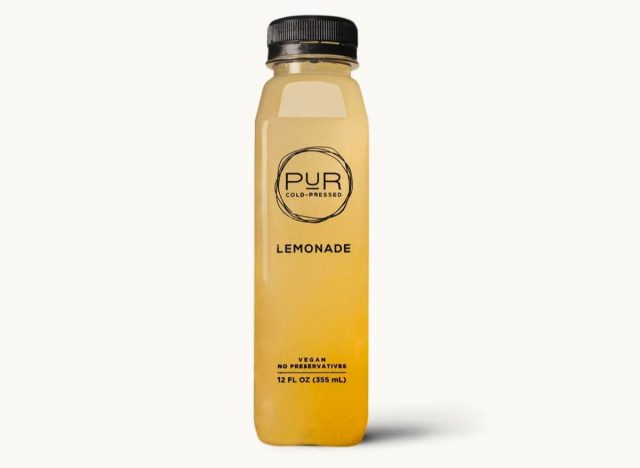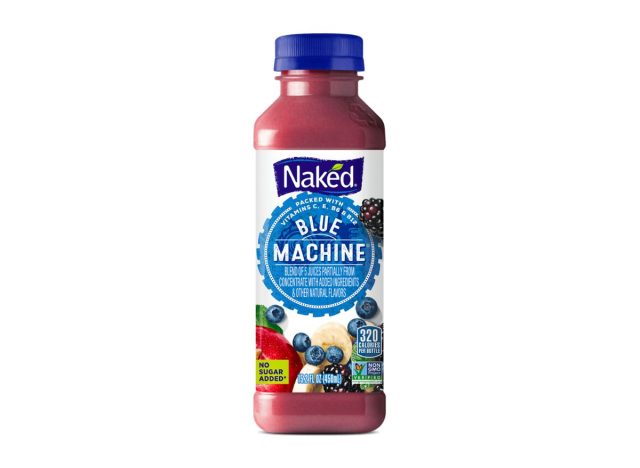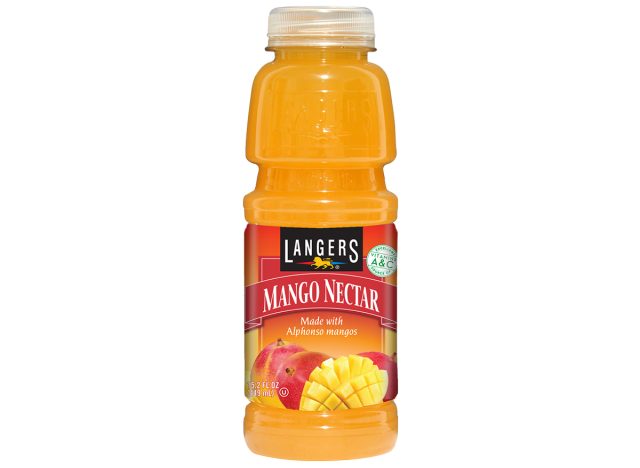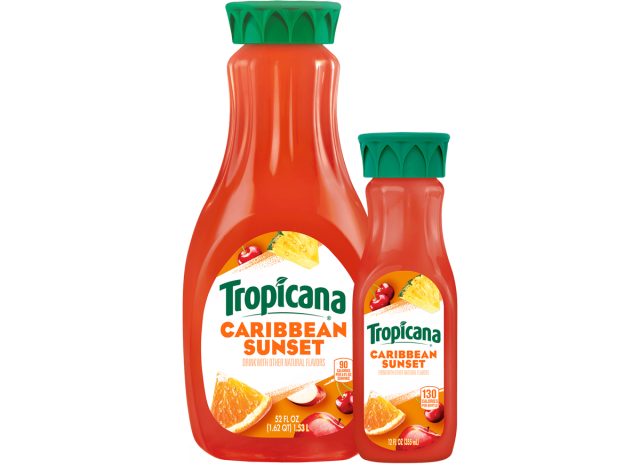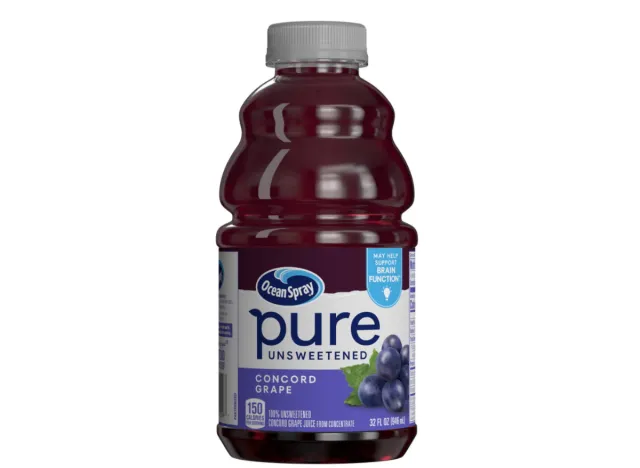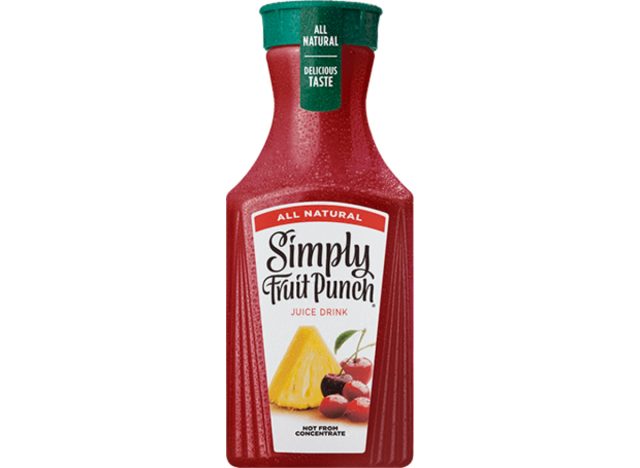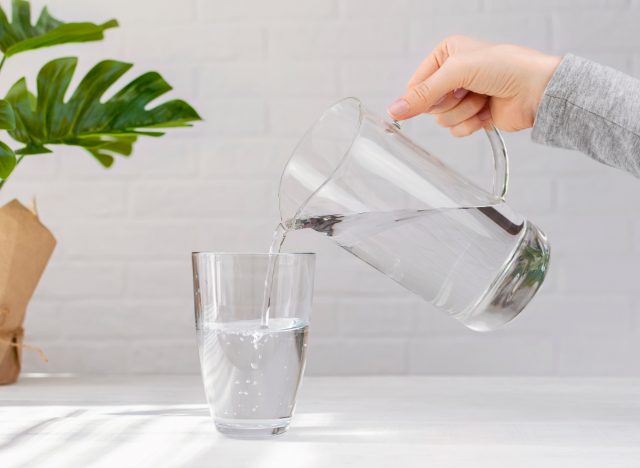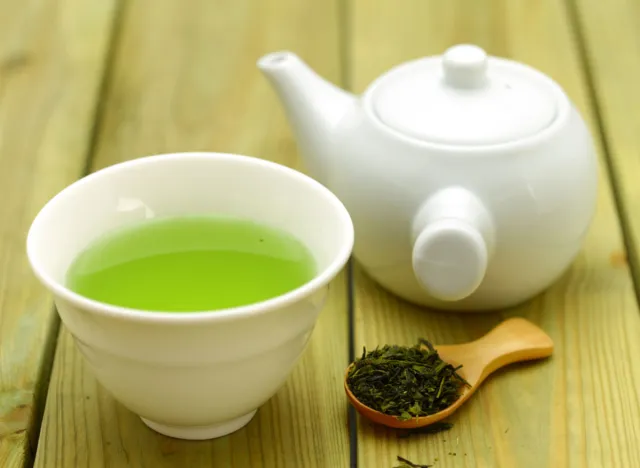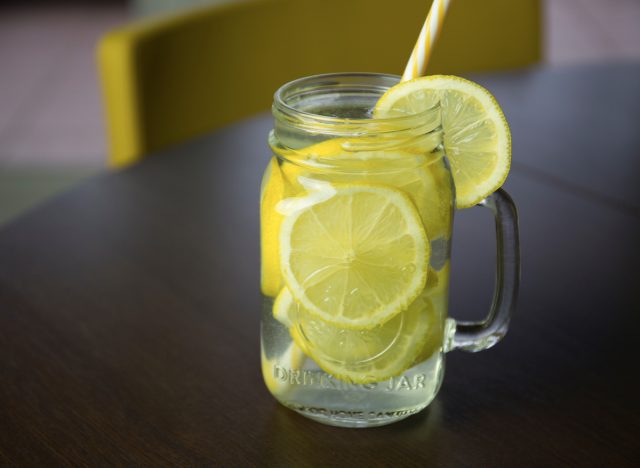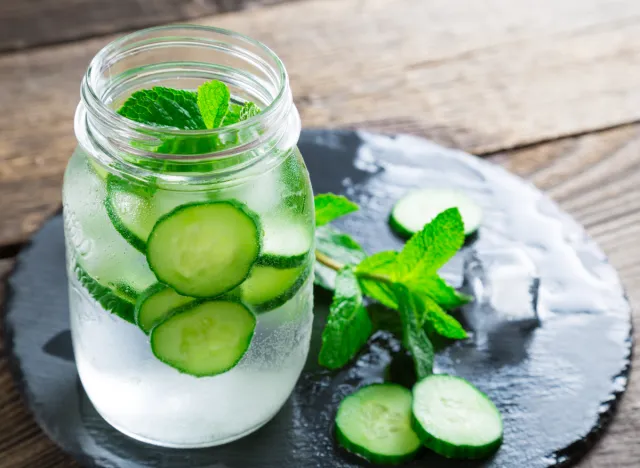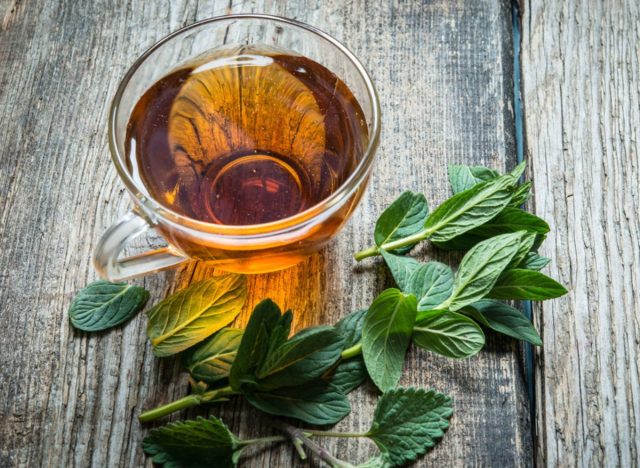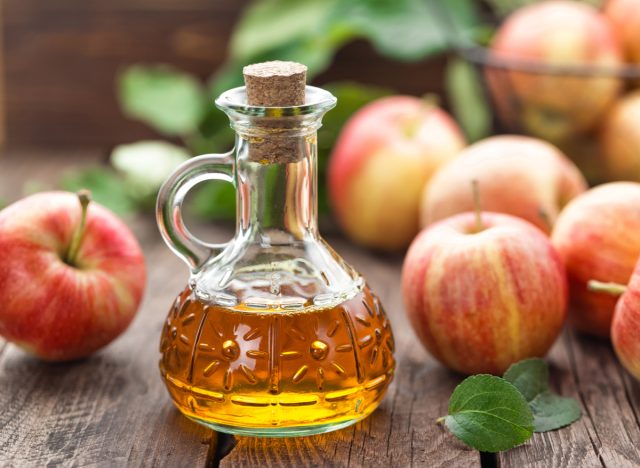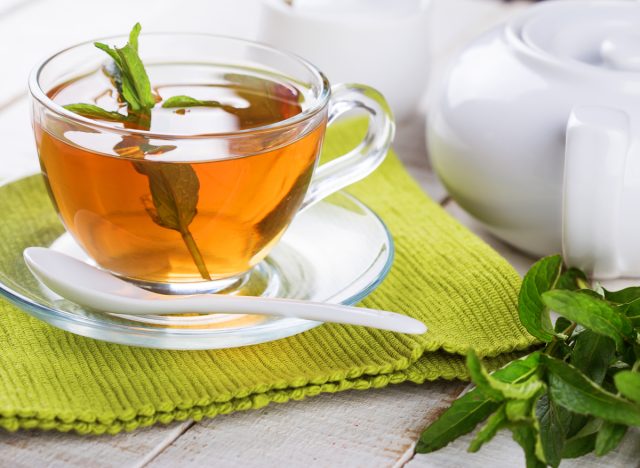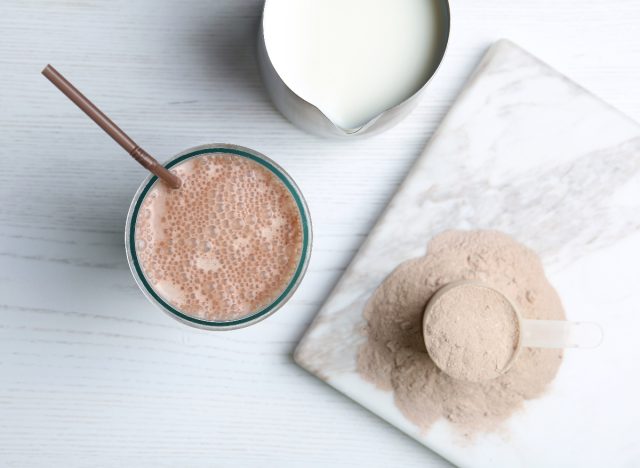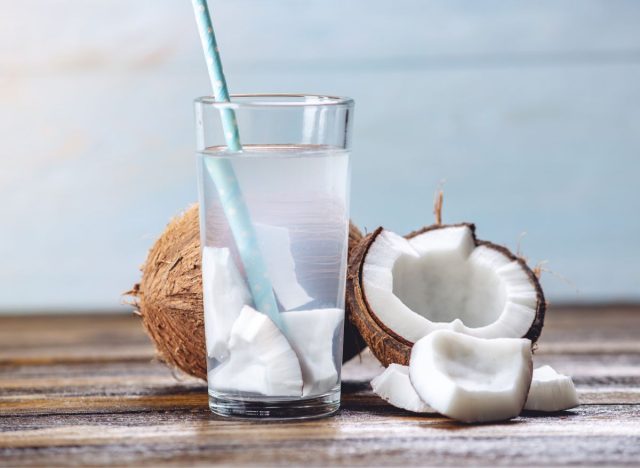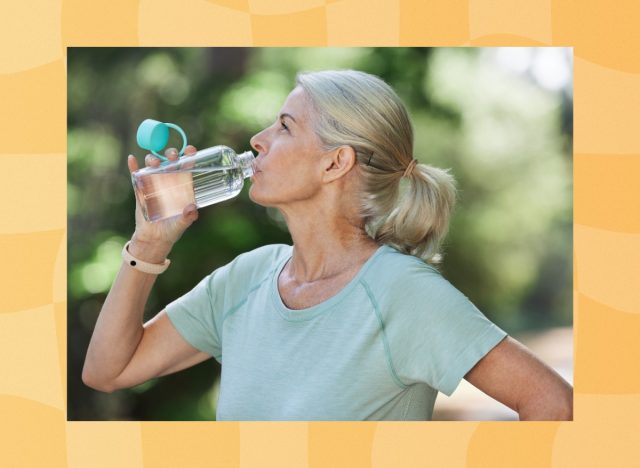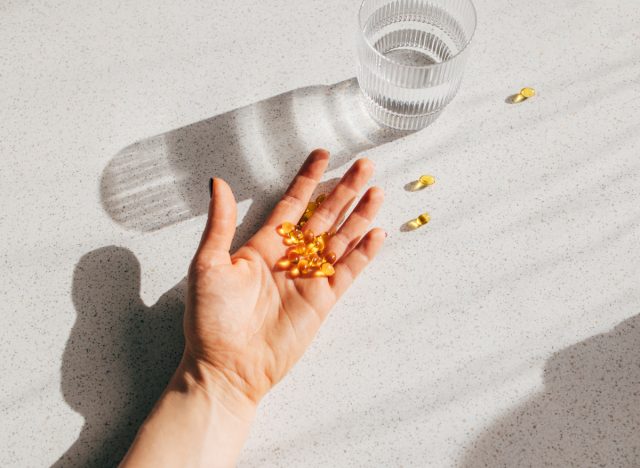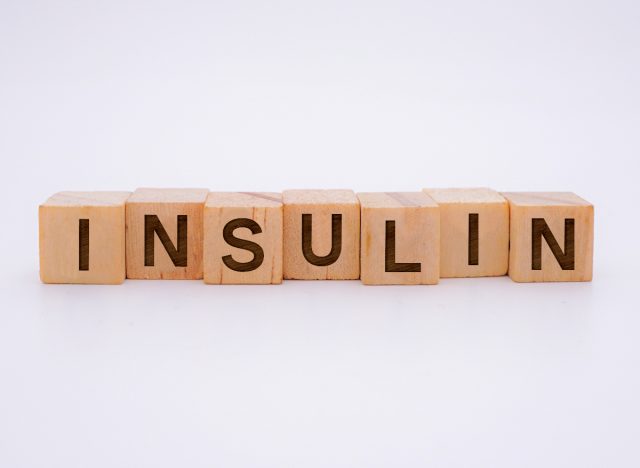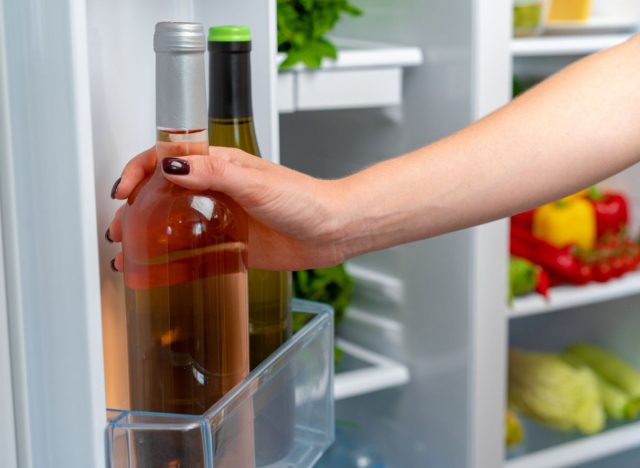Coca-Cola fans mourning the loss of their favorite Cherry Vanilla Coke flavor may find solace in a rival soda company, with news Pepsi is releasing a Wild Cherry & Cream flavor. The delicious new drink will be available from January 20, in both regular and zero sugar varieties, and fans are already buzzing about the new drinks. "Just saw someone mention it on tiktok and google brought me here. I'm HYPED," one excited Redditor said. Although the official release date is not until next week, some customers have been spotting the new drinks already in stores. One Redditor found the Wild Cherry and Cream flavor at a Target in Queensbury, NY, and admitted they were getting over a cold and couldn't really taste much. "They definitely leaned on the vanilla flavor to create the cream soda taste," the person said. "That's good to know because we already have a wild cherry standalone flavor so I rather have something more vanilla tasting or cream balanced," another responded.
According to Pepsi, the Wild Cherry and Cream has a "familiar, initial burst of sweet Pepsi cherry flavor," and the "sweet, fruity effervescence is followed by a smooth, creamy vanilla swirl, delivering a practically silky mouthfeel. It's a refreshing and satisfying blend that's sure to delight your taste buds and make every sip a moment of pure enjoyment." It remains to be seen just how similar Pepsi's Wild Cherry and Cream is to the Coke Cherry Vanilla, which was discontinued due to "consumers' taste preferences and lifestyles constantly changing. As a Total Beverage Company, we are always searching for ways to evolve our product portfolio to bring consumers the beverages they want," Coca-Cola said. Coke loyalists are already planning to jump ship if the taste is good. "It's gotta taste like Cherry Vanilla that got discontinued if it does I'm getting 32 cases," one hopeful Redditor said. "I'll try it. Wild cherry is the best cherry cola to me, and I'm mainly a coke guy. I really miss the soda shoppe black cherry that one was so good," another added.
Pepsi's new offering is very on-trend for the "dirty soda" phenomenon popular in Utah and made mainstream via viral TikTok posts and other social media. The viral soda is usually a non-alcoholic drink of soda mixed with creamer and syrup, depending on personal preferences. "I gained 20 lbs living across from a Sodalicious my sophomore year at BYU. Everyone needs a vice," one Mormon Redditor said about their dirty soda addiction. "The soda scene is largely influenced by LDS Church culture. Historically, members would avoid 'hot drinks' such as coffee and tea," according to the Utah Valley blog. "With this unique diet, soda mixes appeal to the general crowd as a perfect refreshing beverage. Enter dirty soda, which quickly became a beloved alternative for members looking to get their sugar or caffeine high without breaking their religious dietary guidelines." The post Pepsi is About to Release a "Wild" New Flavor and Fans are "Hyped" appeared first on Eat This Not That. Медиа: | ↑ |
Protein powder is a popular way to boost protein intake, supporting workouts, weight management, and overall health. While many powders deliver the extra protein you're looking for, not all protein powders are nutritionally equal. Some powders contain extra sugar, additives, and ingredients you may not want in a supplement. When shopping for a protein powder, it's important to look beyond grams per scoop. Check out the entire Nutrition Facts label, especially the ingredients list. Remember, these powders are supplements, not replacements for real food. Opt for products with fewer ingredients,no added sugar, and few artificial ingredients. We found eight protein powders on grocery store shelves that deviate from the qualities we look for in a supplement and may not want to add to your cart. Body Fortress Super Advanced Whey Protein Powder Cookies & Cream
Nutrition (Per serving): 1 scoop
Calories: 190 Fat: 4 g (Saturated Fat: 2.5 g) Sodium: 160 mg Carbs: 7 g (Fiber: 0 g, Sugar: 4 g) Protein: 30 g Body Fortress's Super Advanced Whey Protein Powder offers a hefty 30 grams of protein per scoop, making it seem like the perfect choice for muscle building. However, the protein boost comes with a side of preservatives, fillers, and artificial ingredients commonly found in ultraprocessed foods, nutrient-poor foods linked to obesity, heart disease, and gastrointestinal disorders. The protein powder is also calorie- and carb-heavy and may lead to unwanted weight gain if you don't modify your workout or eating plan to compensate for the extra energy. Further, the Body Fortress protein powder has the highest amount of saturated fat on our list, meeting 13% of the daily recommended needs. High saturated fat intake can elevate blood cholesterol levels, increasing risk of heart disease and stroke. Optimum Nutrition Gold Standard Plant Protein Rich Chocolate Fudge
Nutrition (Per serving): 1 scoop
Calories: 150 Fat: 3.5 g (Saturated Fat: 2 g) Sodium: 540 mg Carbs: 6 g (Fiber: 2 g, Sugar: 0 g) Protein: 24 g Recent studies show that eating more plant proteins are good for your heart, gut, and weight, leading you to believe that the plant-based protein powders make a healthier choice. But sodium and saturated fat in Optimum Nutrition Gold Standard Plant Protein may cancel out potential benefits you may get from the plant proteins. We like that the supplement uses a plant protein blend to improve amino acid balance, but it contains 540 milligrams of sodium, over 20% the daily limit. Getting too much sodium may lead to high blood pressure and increase risk of heart disease and stroke. Americans already consume more sodium than recommended from food and may not think about sodium content in a supplement. Optimum Nutrition's plant protein powder uses coconut oil as a source of fat, meeting about 10% of the daily value (DV). Though early research suggests the saturated fat in coconut oil doesn't raise cholesterol like saturated fat in butter, health experts recommend limiting intake since little is known about how it may affect risk of cardiovascular disease. RELATED: 10 Best Protein Powders in 2024, According to a Dietitian Seeq Fruit Punch Clear Protein
Nutrition (Per serving): 1 scoop
Calories: 100 Fat: 0 g (Saturated Fat: 0 g) Sodium: 15 mg Carbs: 1 g (Fiber: 0 g, Sugar: 0 g) Protein: 22 g If you prefer a juice-like protein drink, Seeq Clear Protein might catch your eye. With tasty flavors like fruit punch, strawberry lemonade, and blue razz freeze, this protein powder quenches and boosts protein intake. It's also fat-free and low-carb. But, Seeq includes silicone and polysorbate 80, synthetic food additives generally recognized as safe. However, the effects of long-term excessive intake of these food additives is unknown. Regulatory agencies like the FDA require food makers follow a controlled production process when using additives like silicone. However, the FDA doesn't oversee or test dietary supplements like food, leaving it up to the manufacturer to ensure safety for the consumer. Choosing supplements with more natural ingredients may reduce exposure and potential risk. Quest Vanilla Milkshake Whey Protein Powder
Nutrition (Per serving): 1 scoop
Calories: 110 Fat: 0 g (Saturated Fat: 0 g) Sodium: 105 mg Carbs: 3 g (Fiber: 0 g, Sugar: 1 g) Protein: 24 g Quest Nutrition products are a grocery store staple, but their Vanilla Milkshake Whey Protein Powder contains ingredients you may not want in a supplement like carrageenan, a food additive that helps the powder mix better with liquids. Though recognized as safe by the FDA, animal studies indicate that carrageenan may negatively affect gut health and increase risk of inflammatory bowel diseases. The Quest Nutrition protein powder also contains erythritol, a sugar alcohol associated with an increased risk of heart attack and stroke. A 2023 cohort study published in Nature Medicine found that people with higher blood levels of erythritol were more likely to develop blood clots and at greater risk of having a cardiovascular event. More research is needed, but limiting intake of the sugar alcohol may benefit heart health. SixStar 100% Whey Protein Strawberry Smoothie
Nutrition (Per serving): 1 scoop
Calories: 170 Fat: 2.5 g (Saturated Fat: 1.5 g) Sodium: 170 mg Carbs: 8 g (Fiber: 0 g, Sugar: 2 g) Protein: 30 g SixStar 100% Whey Protein is another high-protein supplement designed for muscle building, packing in 30 grams of protein per scoop. But it contains a long list of questionable ingredients, including the artificial sweeteners sucralose and acesulfame potassium (AceK). Artificial sweeteners improve flavor and limit sugar, carbs, and calories in the supplement. People use the calorie-free sweeteners to support weight management and reduce risk of weight-related health conditions like Type 2 diabetes and heart disease. However, research suggests that the calorie-free sweeteners may not help with weight management or reduce risk of disease. Muscle Milk 100% Whey Protein
Nutrition (Per serving): 1 scoop
Calories: 130 Fat: 2 g (Saturated Fat: 1 g) Sodium: 160 mg Carbs: 3 g (Fiber: 0 g, Sugar: 2 g) Protein: 25 g Muscle Milk 100% Whey Protein contains fewer ingredients than other grocery store supplements, but it still uses artificial sweeteners and flavors. It contains.protease and bromelain, digestive enzymes that may reduce gastrointestinal side effects like gas and bloating. Protein powders may contain added active ingredients, like digestive enzymes, that affect the body or interact with medication and something to keep in mind when shopping for a supplement. Talk to your doctor or a registered dietitian for individualized recommendations and guidance. Ghost Whey Nutter Butter
Nutrition (Per serving): 1 scoop
Calories: 160 Fat: 2.5 g (Saturated Fat: 1 g) Sodium: 270 mg Carbs: 8 g (Fiber: 1 g, Sugar: 3 g) Protein: 26 g Gone are the days of protein powder flavors limited to two options: chocolate or vanilla. Ghost Whey stands out with many fun flavors inspired by popular treats, including Nutter Butter, Oreo, and Chips Ahoy!. While these flavors may make it easier for you to enjoy your post-workout drink, the trade-off is added sugar and artificial ingredients. The Nutter Butter protein powder from Ghost lists three sugars in the ingredients — sugar, corn syrup solids, and high fructose corn syrup, supplying 2 grams of added sugar (4% of the DV). It also contains artificial flavors and sweeteners. RELATED: 15 Best Protein Shake Recipes for Weight Loss Equate Plant-Based Protein Supplement
Nutrition (Per serving): 2 scoops
Calories: 190 Fat: 4 g (Saturated Fat: 1 g) Sodium: 490 mg Carbs: 6 g (Fiber: unknown, Sugar: unknown) Protein: 30 g Walmart's Equate Plant-Based Protein is an affordable option with a straightforward ingredient list. However, its high sodium content — 490 milligrams — meets more than 20% of your daily sodium limit. It also contains carrageenan and sucralose. Choosing the best protein powder for you depends on many factors, including nutrition goals, budget, and taste preferences. However, protein powders with added sugar, artificial ingredients, and overly processed formulas make a less than idea choice for health-conscious consumers. The post The 8 Unhealthiest Protein Powders You Can Buy Right Now appeared first on Eat This Not That. Медиа: | ↑ |
Paris Hilton and Nicole Richie, the reality TV stars turned pop culture icons, have teamed up with Sonic Drive-In to unveil a new signature drinks menu, combining Dr Pepper and Sprite with sweets. The partnership is part of a marketing blitz for their big new show—the three-part series titled Paris & Nicole: Encore, now streaming on Peacock—while paying homage to their shared history with Sonic, famously referenced as their "first job." (In their original 2003 reality series, The Simple Life, the duo worked at the fast food chain—and showed up 45 minutes late.) The limited-time menu, titled Sonic Iconic Drinks by Paris and Nicole, features two vibrant beverages that are meant to reflect the pair's distinctive personalities. Available at Sonic locations nationwide, each drink is priced at $3.99 for a medium. RELATED: The 26 Unhealthiest Sodas—Ranked by Sugar Content Bold Flavors Meet Celebrity AppealHilton and Richie allegedly "personally" curated the drinks, ensuring they embody their unique styles.
In a promotional ad campaign, Hilton and Richie visit a Sonic location to brainstorm names for their creations. After considering an array of playful ideas, they settle on the most "iconic" names of all—their own. Sounds about right. A Personal ConnectionHilton expressed excitement about the collaboration, noting in a press release, "We have a long history with Sonic; it was actually our very first job, so it only made sense that it adds two drinks to its menu that celebrate us." Richie added, "We had a blast partnering with Sonic and bringing these drinks to life and coming up with something that reflects our personalities. When we thought about what's truly iconic, it was clear—it's us, Paris and Nicole!" Ryan Dickerson, Chief Marketing Officer of Sonic, emphasized the alignment of the collaboration: "They've been a part of pop culture history, and Sonic history, for so long, and they are legit Sonic fans, so it was a no-brainer to partner with them to bring these iconic drinks and campaign to life." YouTuber Taste TestSo are the beverages good, or just a craven marketing ploy? YouTuber Grace Smith ( @GraceSmith) tried the new signature drinks in her latest video, titled "Trying the NEW Sonic Paris Hilton Drink Collab?! Not What I Expected." In the video, Grace starts by sharing her excitement after spotting the collaboration online. "Obviously we have to go try it," she says, heading to her local Sonic to pick up both drinks. After a quick taste test, Grace declared her preference: "I think my favorite out of the two might be the Paris. Y'all have to let me know if you try them." Grace praised the Hilton-inspired beverage for its fruity and refreshing combination, saying, "That's so good. I mean, how could this not be good looking like what it looks like?" She also enjoyed The Nicole, highlighting its "strawberry cream soda feeling" as a win for Dr Pepper fans. "I'm a big Dr Pepper girly," Grace admitted. In the comments, @kaylafannumber1uwu said, "I need to try these," while @Thatteen-t7u added, "I need to go." RELATED: No, Dr Pepper Wasn't Actually Created By a Doctor Meanwhile, YouTuber The Southern Snack, who covers "the newest snacks and food out there," dove into his own taste test, beginning with the Paris Hilton. "Very tropical. Very tangy," he said, describing its combination of Sprite, dragon fruit, and Nerds. However, the tanginess was "a bit much" for his taste, earning the drink a 7 out of 10. The Nicole Richie, however, was a clear winner in his eyes. Comparing it to the strawberries and cream Dr Pepper available in stores, he called this version "a burst of natural strawberry and vanilla." The Southern Snack gave it a glowing 10 out of 10, declaring it the "star of the show" and jokingly telling Paris Hilton to "move aside" for Nicole Richie's drink. User @amandapiacenza7281 commented, "These sound so good. Too many new drinks at Sonic to try. Thanks for the review :)." Another viewer, @jennysprouse9726, added, "Thanks for the review. I was wondering what the heck that might taste like! The post Dr Pepper and Sprite's New Flavor Combos Have Fans Flocking to Sonic: 'These Sound So Good' appeared first on Eat This Not That. Медиа: | ↑ |
It's that time of year when many of us are thinking about what we can do to get through the fall and winter without catching the dreaded cold or flu. The first thought often turns to boosting our body's immune defenses, whether that's with healthy foods or immunity-boosting drinks. The immune system is the body's natural defense network comprised of cells, tissues, and organs that help protect the body from bacteria, viruses, fungi, and other harmful substances. The immune system provides a barrier to prevent the invaders from entering our body, but also has an intricate system of cells to fight off the pathogens if they do find a way to enter the body. A healthy overall lifestyle that ensures plenty of high-quality sleep is essential for strong immunity. Eating right and drinking beneficial beverages can also help bolster your body's immune system. Read on to learn about some immune-boosting drinks you can enjoy to prepare your body for the winter season, and for more healthy eating tips, check out the 10 Best Foods to Boost Your Immunity.
Since our bodies are around 60-70% water by weight, and every single bodily function requires water, drinking adequate amounts of H20 is a good place to start to keep your immune system functioning. When your body is dehydrated, it can promote the growth of bacteria and viruses. That's why it's so important to make sure you drink the optimal amount of water for your body's needs every single day. A good rule of thumb for how much water is to drink half of your body weight in fluid ounces. If you weigh 150 pounds, your goal would be 75 ounces of water a day. Some of the ways that water helps support the immune system is by aiding the absorption of nutrients and maintaining the mucous membranes in your nose, mouth, and throat that are often the first line of defense against a pathogen and a natural barrier to infections. Water is also an essential component of lymphatic fluid, which delivers white blood cells that help fight infections. A study published in the journal Medical Hypotheses reported that individuals who were noted as being dehydrated prior to contracting COVID 19 were at increased risk of dying from COVID-19. The authors recommend that there should be public health recommendations to drink more water to help prevent and have better outcomes in fighting COVID-19. RELATED: 8 Best Foods to Help You Sleep
Green tea is another great beverage to enjoy to bolster your body's natural defenses. Green tea is rich in beneficial polyphenol flavonoids that provide myriad health benefits, from reducing the risk of heart disease and certain cancers to managing systemic inflammation. According to a study published in the journal Molecules, green tea strengthens immunity through its antioxidants that help protect cells against oxidation and reactive oxygen species. Green tea is thought to protect against diseases and infections by its antioxidant capacity as well as many other proposed pathways. It is also calorie-free and has a long history of being enjoyed for its numerous health-promoting benefits.
Kefir is a fermented, yogurt-like beverage made from different types of milk, such as cow, sheep, and goat. Like yogurt, kefir is rich in different beneficial probiotics that help keep your GI tract microbiota balanced. Kefir's main beneficial bacteria is Lactobacillus kefiri, while traditional yogurt's main probiotics are Lactobacillus bulgaricus and Streptococcus thermophilus. A review article published in the journal Nutrients reported that kefir provides antioxidant, antimicrobial, anti-inflammatory, wound healing, and many other health benefits. RELATED: What Happens to Your Body When You Eat Berries Every Day
Whether you make your own or purchase a brand of lemon ginger tea at your supermarket, this herbal tea is a great choice to help keep your immunity up. The tea is made by combining freshly grated ginger and lemon juice in hot water. Nationally available brands are made with lemongrass, lemon peel, and natural ginger. Some even have added probiotics for more immune-boosting benefits. Lemon ginger tea is rich in vitamin C, an antioxidant that is known to help protect cells against oxidative damage. Vitamin C also provides anti-inflammatory properties and helps turn down negative immune responses, according to research published in the journal Antioxidants. Ginger also possesses more than 100 bioactive compounds that help fend off nausea, reduce risk for certain cancers, improve blood lipids, reduce inflammation and much more, according to research published in the journal Nutrients.
Orange juice is often promoted as a beverage of choice if you're trying to fight off a cold or flu virus, and there is significant scientific support to drink citrus juice for your immune system. According to a study published in Frontiers in Immunology, the vitamin C and folate in citrus juices sustain the integrity of the immune barriers and protect many types of immune cells, including natural killer cells and T-cells. What's more, the bioactive compounds in citrus have anti-inflammatory effects to support immunity. Both orange and grapefruit juice are nutrient-rich and provide more than 100% of the total vitamin C you need a day in one serving. These 100% fruit juices also provide vitamin A and folate. When buying orange juice, you can even find options that are fortified with vitamin D, a nutrient long known to be essential for healthy immunity. RELATED: What Happens to Your Body When You Eat Soup Every Day
Like citrus fruit, tomatoes are rich in vitamin C as well as lycopene, a beneficial antioxidant carotenoid that possesses many health-promoting properties and is known to help tamp down systemic inflammation. Tomato soup is often recommended when you have a cold or flu for it's vitamin C, but refreshing tomato juice will provide similar amounts of vitamin C. What's great about tomato juice is that eight ounces has just 50 calories, no added sugar, and nearly 100% of the vitamin C that you need in a day. To keep sodium levels in check, look for lower-sodium tomato juice. The post 6 Best Immune-Boosting Drinks to Fight Off Sickness appeared first on Eat This Not That. Медиа: | ↑ |
Losing weight is already hard enough, but specifically losing fat around your stomach can be an extra challenge. That's because most belly fat is different than the fat around the rest of your body. The majority of your belly fat is called visceral fat, which is located deeper than other body fat and sits around your abdominal organs. This makes it more dangerous than other body fat, and carrying too much of it can lead to an increased risk of things like heart disease or diabetes. Thankfully, there are things you can do to manage this type of fat, and there are even teas linked to burning belly fat. No type of food or drink exists that can beat belly fat on its own, but some items contain certain compounds, vitamins, and nutrients that research has shown can aid in losing abdominal fat as part of a balanced diet. For example, you can eat foods higher in fiber, as this is a nutrient that has been linked to the reduction of abdominal fat, but doing this on its own will most likely not give you the results you're looking for. The same can be said for drinking tea for belly fat. Teas naturally contain many different antioxidants and plant compounds that have been linked to a variety of health benefits, some of which have specifically been found to help in losing fat around your stomach. Read on to learn about some of the specific types of tea that research shows can help you lose belly fat, and for more, check out the 20 Best Detox Waters. Green Tea
Green tea may be one of the most notable teas for burning belly fat. According to a recent 2022 study published in the International Journal of Environmental Research and Public Health, participants who consumed large amounts of green tea—we are talking four or more cups a day—had a 44% lower risk of developing abdominal obesity than participants who didn't drink any green tea. An older 2008 study published in Physiology & Behavior found that obese participants who regularly drank green tea lost more overall body weight than participants who didn't drink any, and a 2009 study published in The Journal of Nutrition found that consuming green tea catechins—an antioxidant found in green tea leaves—can help reduce abdominal fat when paired with exercise. But what gives green tea these belly fat-burning qualities? Research shows that most of its weight loss properties are due to its rich polyphenols, and a subgroup of these polyphenols known as catechins. The most abundant catechin found in green tea is ECGC, which has been linked to speeding up metabolism. You can find EGCG in other types of tea, but green tea by far has the highest concentration of these metabolism-boosting plant compounds. RELATED: 10 Healthiest Juices on Grocery Shelves, According to Dietitians Oolong tea
Another tea that has been proven to help with abdominal fat is oolong tea. Oolong tea comes from the same leaves where you'd find green and black tea, but it's partially oxidized, whereas green tea is unoxidized, and black tea goes through full oxidation. Oolong is made by drying the leaves under the sun until they're wilted and curled up. Research shows that oolong tea also contains polyphenols linked to faster metabolism and reduced abdominal fat. One animal study published in The Journal of Nutrition showed that the polyphenols in green, black, and oolong teas all had the ability to help lower visceral fat tissue. One 2020 study from the University of Tsukuba even found that oolong tea increased the breakdown of fat by around 20%, and continued to do so while participants slept. RELATED: 7 'Healthy' Iced Tea Brands With More Sugar Than a Can of Coke Black tea
Fans of chai, English breakfast tea, and Earl Grey (all types of black tea) will be pleased to know that research has linked black tea to weight loss and reduced visceral fat. A 2016 report published in the journal Molecules says that the polyphenols found in black tea have anti-obesity properties and can help with the reduction of body weight and visceral fat, while the animal study mentioned earlier from The Journal of Nutrition includes black tea alongside oolong and green for its effect on abdominal fat. Participants from a 2014 study published in Food & Function who drank three cups of black tea every day for three months saw more weight loss and reduction in their waist circumference (AKA their belly fat) than those who didn't drink the tea. RELATED: 7 Best Teas To Drink for a Longer Life White tea
We've already mentioned three of the four major types of tea groups: green, oolong, and black. The fourth group of tea is white tea, which is known as the most delicate and least processed type of tea. White tea—along with green and oolong—has been found to speed up metabolism and increase fat oxidation, which may help with overall weight loss or management. A recent 2023 report published in Food Safety & Health also concluded that white tea had a beneficial impact on weight loss as well as visceral fat in particular. Pu-erh tea
Now that we've gone over the belly fat-melting benefits of green, oolong, black, and white tea, let's look at a specific type within these categories. One kind of fermented Chinese black tea known as pu-erh tea has been linked to weight loss or fat reduction in several studies. A 2014 study published in Phytotherapy Research found that male participants with metabolic syndrome who drank pu-erh tea saw a slight decrease in body fat and BMI. Another study from Nutrition Research discovered that extract from pu-erh tea helped lower body weight, BMI, and visceral fat in Japanese adults. The post 6 Teas That Burn Belly Fat appeared first on Eat This Not That. Медиа: | ↑ |
On its own, coffee is a very low-calorie drink that actually provides some antioxidant benefits as well. A cup of black joe will run you only 5 calories and contains no added sugar or fat. However, coffee creamers can add a surprising number of calories and grams of added sugar to your coffee. While the flavor they provide cuts the bitterness and acidity of coffee, you may be better off skipping certain creamers. Even non-dairy creamers, which some may associate with being healthier, contain added sugar and ingredients you may want to skip. How we chose the unhealthiest coffee creamers
The 7 unhealthiest non-dairy coffee creamersAdding 30 calories to your coffee may not sound like much, but when you use multiple servings on a daily basis, this can add up. Not only can this lead to excess calorie intake, but with the majority of calories in non-dairy creamer coming from sugar, more concerning outcomes are possible. Here are the seven unhealthiest non-dairy coffee creamers on grocery shelves. And for what to buy instead, don't miss 9 Healthiest Non-Dairy Coffee Creamers on Grocery Shelves. Coffee Mate Caramel Almond & Oat Liquid Coffee Creamer
Per serving: 30 calories, 1 g fat (0 g saturated fat), 25 mg sodium, 5 g carbs (0 g fiber, 5 g sugar), 0 g protein
Containing 5 grams of added sugar per serving, which is only one tablespoon, this Coffee Mate option has the highest sugar content amongst non-dairy creamers. Let's be honest, most people will use more than one serving per cup of coffee, and many will have more than one cup in a day. This combination can lead to hundreds of extra calories per day from added sugar. RELATED: 9 Unhealthiest Coffee Creamers on Grocery Shelves Starbucks ® Non-Dairy Caramel Flavored Creamer
Per serving: 30 calories, 1 g fat (0 g saturated fat), 20 mg sodium, 5 g carbs (0 g fiber, 5 g sugar), 0 g protein
Another option with 5 grams of added sugar per serving, this Starbucks creamer packs a sugary punch. Although it is on the lower end of sodium content compared to other options on this list, that doesn't make up for the sugar content. You'll also find "natural flavors" in this option, which sounds reasonable, but has some questionable research behind it. Silk Mocha Almond Creamer
Per serving: 30 calories, 1 g fat (0 g saturated fat), 30 mg sodium, 5 g carbs (0 g fiber, 4 g sugar), 0 g protein
This non-dairy creamer is another option with added sugar and natural flavors, and provides the highest sodium content on our list. While 30 milligrams of sodium leaves plenty of room to consume other sodium sources throughout the day, multiple servings of even small amounts can add up significantly. RELATED: 11 Coffee Orders That Make Baristas Roll Their Eyes SOWN Organic Oat Creamer Vanilla
Per serving: 35 calories, 1 g fat (0 g saturated fat), 10 mg sodium, 6 g carbs (0 g fiber, 4 g sugar), 0 g protein
At 35 calories per serving, this is the highest-calorie option on our list. This doesn't inherently make something unhealthy, but, again, the majority of these calories come from added sugar. In fact, organic cane sugar is the second ingredient listed, behind organic oat milk. Being an organic ingredient may lead you to think this sugar is healthier than other options, but organic sugar can lead to the same negative health outcomes as conventional sweeteners. Planet Oat Sweet & Creamy Oatmilk Creamer
Per serving: 25 calories, 1 g fat (0 g saturated fat), 20 mg sodium, 4 g carbs (0 g fiber, 4 g sugar), 0 g protein
This variety provides only 25 calories per serving, making it the lowest calorie option on our list. While this is a positive, these calories come almost entirely from added sugar. Along with this sugar, you won't find any valuable vitamins or minerals, making this creamer an empty source of calories. RELATED: 9 Tastiest Weight Loss Meals That Are 500 Calories or Less So Delicious Sweet & Creamy Coconutmilk Creamer
Per serving: 30 calories, 1 g fat (0 g saturated fat), 15 mg sodium, 4 g carbs (0 g fiber, 4 g sugar), 0 g protein
With marketing phrases like USDA organic, gluten-free, and vegan, you may pick this option thinking it is a healthier variety. Although it may have slightly less sugar than other options, it still provides four grams per serving. You'll also find organic glycerin in this product. While this additive is used in very small amounts in creamer, some research has linked it to headache and dizziness, amongst other symptoms. RELATED: 12 Best & Worst Greek Yogurts, According to Dietitians Almond Breeze Vanilla Almondmilk Non-Dairy Creamer
Per serving: 25 calories, 1 g fat (0 g saturated fat), 20 mg sodium, 4 g carbs (0 g fiber, 4 g sugar), 0 g protein
Last on our list, this almond-based creamer still provides four grams of added sugar per serving. Unfortunately, you won't get any of the heart-health benefits from the almonds used as there is only a half gram of unsaturated fat in this product. The 25 calories it provides per serving is on the low end of what the creamers on this list provide, contributing slightly fewer empty calories. However, you are still better off looking for varieties with no added sugar. The post 7 Unhealthiest Non-Dairy Coffee Creamers on Grocery Shelves appeared first on Eat This Not That. Медиа: | ↑ |
In theory, juice should be a healthy beverage—it's made from fruit, after all, right? Even the dietary guidelines consider a cup of 100% fruit juice to be a single serving of fruit. Unfortunately, though, not all juice brands are created equal, and some may be more detrimental to our health than we realize. That's because many of the bottled juices stocking the shelves at your local supermarket contain very little actual fruit, almost no fiber, and a whole lot of added sugar. To shed light on the less-than-ideal choices, we spoke with dietitian experts to compile a list of the juice brands that fall short with respect to nutrition and overall health. From sugar-laden blends to misleading health claims, prepare to discover which juice brands to skip if you're working toward a healthier lifestyle. Also, for more tips to help you discern which foods are actually healthy versus the imposters, be sure to check out 7 'Healthy' Foods That Are Actually Worse for You Than Candy, Say Dietitians. How healthy is fruit juice, really?Your inkling that fruit juice is healthy is true! Fruit juices—100% fruit juices, specifically—can be a good source of essential vitamins and minerals, such as vitamin C and potassium, and they provide some antioxidants. Additionally, juice can be a convenient way to consume fruit, especially if fresh fruit is not available or you find yourself struggling to consume fruit at each meal. The biggest downside to fruit juice is that it's high in sugar, and if you're not drinking 100% juice, your beverage is probably also high in added sugars. Studies show that sugar-sweetened beverages, such as certain unhealthy juice drinks, are the single largest source of calories and added sugar in the U.S. diet. These drinks don't really fill you up, nor do they provide much nutritional value. It's important to consume fruit juice in moderation and limit your portion sizes, which is considered to be one cup or eight ounces. The USDA suggests that "at least half of the recommended amount of fruit eaten should come from whole fruit, rather than 100% fruit juice" because whole fruit provides beneficial nutrients, such as fiber, that's missing in the juiced version. RELATED: Is Orange Juice Good For You? Here's What the Science Says What makes a store-bought juice unhealthyExperts say these factors can help you identify juice brands that are less nutritionally beneficial.
Now that you know how to best identify fruit juice that is actually good for you, find out which juice brands are masquerading as healthy, nutritionally dense options that you'll want to steer clear of, per the advice of dietitians. Here's what nutritionists say are the unhealthiest juice brands in stores. Read on, and for more, don't miss 8 Soda Brands To Stay Away From Right Now. Bolthouse Farms' Green Goodess
Per 15.2 fl oz bottle: 240 calories, 0.5 g fat (0 g saturated fat), 30 mg sodium, 56 g carbs (3 g fiber, 46 g sugar), 2 g protein
"While Bolthouse Farms' Green Goodess may seem like a nutritious choice with its blend of spinach, kale, and spirulina, a closer look at its nutritional profile reveals a significant problem," explains Jessie Hulsey, RD, an Atlanta-based dietitian."With a staggering 46 grams of total sugar, only 3 grams of fiber, and a mere 2 grams of protein per serving, this smoothie falls short of providing the balanced nutrition that individuals need. Excessive sugar intake, coupled with insufficient fiber and protein, can lead to blood sugar spikes, poor digestion, and a lack of satiety." RELATED: 10 Healthiest Juices on Grocery Shelves, According to Dietitians Ocean Spray Cranberry Juice Cocktail
PER 8 fl oz: 110 calories, 0 g fat, 5 mg sodium, 28 g carbs (0 g fiber, 25 g sugar), 0 g protein
Sarah Pflugradt, MS, RDN, CSCS, of Fueling Active Kids advises against Cranberry Juice Cocktails. "Cranberry juice cocktail sounds like a sip of healthy antioxidants, but go for the 100% juice if cranberry is your juice of choice. The 'cocktail' typically means it is loaded with added sugar," says Pflugradt. For children under the age of two, juice is no longer recommended due to its high sugar and calorie content without many other nutrients. Ocean Spray's Cranberry Juice Cocktail is one example of how much added sugar can be packed into cranberry juice. With 25 grams of sugar in 8 ounces, you'll meet the daily added sugar recommendation in just one serving! Welch's Fruit Punch
PER 8 FL OZ: 100 calories, 0 g fat, 25 mg sodium, 25 g carb (0 g fiber, 23 g sugar), 0 g protein
An 8-ounce serving of this juice contains about 50% of your daily value for vitamin C. Aside from that, though, this beverage offers almost no nutritional benefits—and a number of drawbacks. "The first two ingredients in Welch's Fruit Punch are water and high fructose corn syrup," says Feder. "It's high in added sugars [22 out of the 23 total grams of sugar are added sugars], which can lead to unwanted weight gain and chronic diseases when consistently consumed. Additionally, it lacks several important vitamins and minerals and has no significant nutritional value." This product also contains the zero-calorie sweetener sucralose, which some studies have found may cause an imbalance in the gut microbiome, as well as reduce insulin sensitivity. RELATED: The 24 Worst Drinks for Your Health PUR Cold Pressed Turmeric Lemonade
PER 16 fl OZ: 150 calories, 0 g fat, 0 mg sodium, 38 g carbs (0 g fiber, 32 g sugar), 1 g protein
"The PUR Cold Pressed Turmeric Lemonade juice may sound like a healthy choice containing anti-inflammatory turmeric, but with 30 grams of added sugar in a 16-ounce serving, that is far from something that will reduce inflammation. Consuming too much added sugar can raise blood pressure, blood sugar, and triglycerides (a common fat in the blood), which are all markers of inflammation," says Sheri Berger, RDN, CDCES. PUR carries a line of shot-sized juices that might be a better way to get your fix. Packed with antioxidants and other micronutrients, you can get your nutrition in a condensed serving size without the added sugars. Naked Blue Machine Juice
PER 15.2 FL OZ BOTTLE: 320 calories, 0 g fat, 20 mg sodium, 76 g carbs (3 g fiber, 55 g sugar), 2 g protein
When it comes to the unhealthiest fruit juices, Patricia Kolesa, MS, RDN, tells us that "the first juice that comes to mind for me is Naked Juice." "While many of them contain fruits and vegetables, some of them [such as the Blue Machine flavor] contain 50 grams of sugar or more," says Kolesa. "This is more than you might get from a can of soda! Too much added sugar from beverages in the diet can contribute to blood sugar spikes and 'sugar crashes' or low energy levels." For a healthier alternative, Kolesa advises the following: "My recommendations would be to make your own juice—or smoothie—at home or eat whole fruits as often as possible!" RELATED: 20 Best-Ever Weight Loss Smoothies Langers Mango Nectar
PER 8 FL OZ: 140 calories, 0 g fat, 15 mg sodium, 35 g carbs (0 g fiber, 33 g sugar), 0 g protein
In addition to avoiding the health halo claims noted above, you'll also want to take a second look at any juice labeled as "GMO-free" or claiming to have "no high fructose corn syrup," as these claims can also create a false sense of healthiness for certain juice products. Oftentimes, juice "cocktails" can still be pumped with added sugars. This appears to be the case with Langers Mango Nectar Juice, which despite its claim not to contain any high fructose corn syrup, still contains 23 grams of added sugars per cup. That's a whopping 46% of your recommended daily limit for sugar for a tiny drink! Langers' ingredients are also primarily composed of filtered water and has minimal amounts of mango puree. Tropicana Caribbean Sunset
PER 8 FL OZ: 90 calories, 0 g fat, 5 mg sodium, 21 g carbs (0 g fiber, 21 g sugar), 0 g protein
"This juice provides very little nutritional value," says Krutika Nanavati, MS, a Ph.D. candidate in the School of Sport, Exercise, and Nutrition and licensed nutritionist with ClinicSpots. Tropicana Caribbean Sunset only offers about 10% of your daily value for vitamin C—probably because the main ingredients in this beverage are water and sugar. Out of the whopping 21 grams of sugar in this drink, 17 grams are added sugar. That also translates to 21 grams of carbohydrates, which is about the equivalent of two slices of wheat bread. RELATED: 10 Breads to Always Leave on Grocery Store Shelves Ocean Spray Pure Unsweetened Concord Grape Juice
PER 8 FL OZ: 150 calories, 0 g fat, 15 mg sodium, 39 g carbs (0 g fiber, 37 g sugar), 0 g protein
"The Ocean Spray Pure Unsweetened Concord Grape Juice leads you to believe they reformulated their popular grape juice to make it more nutritious for you," explains Brittany Delaurentis, RD. "However, one cup of juice still provides 37 grams of sugar and 39 grams of carbohydrates. Your best will always be snacking on some fresh grapes instead." RELATED: 8 Science-Backed Benefits of Eating Grapes Simply Fruit Punch
PER 8 FL OZ: 100 calories, 0 g fat, 15 mg sodium, 25 g carbs (0 g fiber, 25 g sugar), 0 g protein
Across the board, dietitians agree that fruit punches should generally be avoided. That's because they're usually sugar bombs, and contain very little actual fruit juice. Take Simply Fruit Punch, for example. The name is a bit misleading, considering that fruit is the third ingredient behind water and sugar. In fact, 21 out of 25 grams of sugar in this drink are purely added sugars. A previous version of this article was published in May 2023. It has since been updated to include additional research and entires. The post The 9 Unhealthiest Juices On Grocery Store Shelves appeared first on Eat This Not That. Медиа: | ↑ |
When it comes to sculpting a toned and flat belly, you may think what you choose to put on your plate will make or break your success. But what you choose to drink can be just as crucial as what you eat. While beverages are often overlooked when it comes to managing weight, they play a significant role in weight management. From revving up your metabolism to boosting digestion and curbing cravings, the right drinks can help you achieve a toned midsection. To learn more about the top belly-reducing beverages, we chatted with Trista Best, RD, a registered dietitian with Balance One Supplements, who unveils the ten best drinks to help you achieve a flat belly. While these options aren't magical elixirs that guarantee instant results, they can certainly complement a balanced diet and regular exercise routine to help you reach your weight loss goals. If you want to make smarter beverage choices that support your fitness and wellness goals, you're in the right place. Read on to discover which drinks are best for achieving a flat belly. And, when you're done, learn more about these 6 'Bad' Carbs That Are Actually Good For Weight Loss. Water
Starting your day with a glass of water kickstarts your metabolism and can help control your appetite. That's because staying well-hydrated throughout the day supports your body's ability to metabolize fat efficiently. Studies show that drinking water before meals can also make you feel fuller, reducing the chances of overeating. Aim for at least eight glasses of water daily for optimal hydration and digestive health. "Staying well-hydrated is crucial for overall health and can help control your appetite, prevent overeating, and support metabolism," says Best. RELATED: 8 Best Drinks for Weight Loss Green Tea
Green tea is a metabolism-boosting powerhouse due to its high catechin content. These natural antioxidants promote fat oxidation, improve insulin sensitivity, and support healthy weight management. Additionally, the moderate caffeine content in green tea can provide a gentle energy boost, making it an excellent alternative to sugary, calorie-dense beverages. "Green tea contains antioxidants and compounds like catechins, which may help boost metabolism and increase fat oxidation," states Best. Lemon Water
Lemon water is packed with vitamin C, which supports your body's fat oxidation process. Drinking warm lemon water in the morning can kickstart your metabolism and promote a sense of fullness, potentially preventing overeating later in the day. "Lemon water is low in calories and can help with digestion and detoxification," says Best. "It also adds flavor to plain water, making it more enjoyable to drink." RELATED: What Happens to Your Body When You Drink Lemon Water Ginger Tea
According to a 2021 review, ginger tea can soothe an upset stomach, alleviate bloating, and reduce inflammation in the digestive tract. These benefits support a flatter belly by preventing digestive issues that can cause temporary distention. "Ginger has anti-inflammatory properties and can aid digestion, potentially reducing bloating and promoting a flatter stomach," explains Best. Cucumber-Infused Water
Cucumber-infused water is more than just a spa-day favorite; it can be a helpful tool for maintaining hydration and managing weight. Cucumbers are made up of over 95 percent water, making this infusion highly hydrating. Additionally, they contain compounds that may help control appetite, potentially reducing overall calorie intake. "Cucumber-infused water is refreshing and low in calories," says Best. "It can help you stay hydrated and may have a mild diuretic effect." Peppermint Tea
According to the experts at Mount Sinai, peppermint tea is a soothing beverage known for its digestive benefits. It can alleviate gas, bloating, and indigestion, creating a more comfortable feeling in your abdomen and promoting a flat tummy. "Peppermint tea can soothe digestive discomfort and reduce bloating, making it a good choice for promoting a flatter belly," states Best. Apple Cider Vinegar
A 2021 meta-analysis published in BMC concluded that apple cider vinegar (ACV) may help control blood sugar levels and enhance feelings of fullness. Some studies suggest ACV can promote fat loss, especially when combined with a healthy diet and exercise. To incorporate ACV into your routine, dilute a tablespoon in a large glass of water and consume it before meals. "Some people claim that ACV can aid in weight loss and reduce belly fat when consumed in moderation. Mix it with water or use it in salad dressings," says Best. RELATED: What Happens to Your Body When You Drink Apple Cider Vinegar Herbal Tea
Research shows that drinking herbal teas throughout the day can keep you hydrated while offering potential digestive and weight management benefits. "Herbal teas like dandelion, chamomile, and fennel can support digestion and reduce water retention, potentially contributing to a flatter stomach," explains Best. Protein Shakes
Protein shakes are a convenient way to increase your protein intake, which, according to a 2020 study, can enhance appetite control and muscle maintenance. Choose low-sugar protein shakes that provide a balanced blend of protein, fiber, and essential nutrients. Consuming a protein shake as a snack or meal replacement can help you stay satisfied and reduce your total calorie intake. Best tells us, "High-quality protein shakes can help control appetite and support muscle growth, which can aid in overall weight management." RELATED: 10 Best Protein Shake Recipes for Weight Loss Coconut Water
While it doesn't directly target belly fat, coconut water can boost metabolic function, prevent water retention, and reduce bloating by keeping you adequately hydrated. "Coconut water is a natural electrolyte-rich beverage that can help prevent dehydration and promote a balanced fluid balance," says Best. The post 10 Best Drinks for a Flat Belly, According to a Dietitian appeared first on Eat This Not That. Медиа: | ↑ |
For many of us, a cold beer after a long work day or during a casual gathering with friends is a delightful ritual. Beer has been an American staple for centuries with its many flavors and cultural significance. But what really happens to your body if you make drinking beer a daily habit? Beer, like any alcoholic beverage, can significantly impact your body. And, like any pleasurable food or beverage, moderation is key to enjoying beer responsibly. While some studies suggest that moderate beer consumption may offer certain health benefits, such as boosting heart health and providing essential nutrients, drinking beer every day can lead to a host of health issues. Daily beer consumption has numerous consequences, from weight gain and liver problems to sleep disorders and dehydration. That's why it's essential to understand how this beloved beverage interacts with your body and the potential outcomes of overindulgence. Read on to learn what happens to your body if you drink beer daily. And, when you're finished, don't miss 6 Ways To Melt Your Beer Gut Fast. Weight Gain
Beer is high in empty calories, contributing to weight gain if consumed daily. According to a 2015 study, those extra calories, especially from beer's carbohydrate content, can quickly add up. Weight gain can lead to various health issues, including obesity and its associated complications. Michael Masi, CPT, a certified personal trainer at Garage Gym Reviews tells us, "Beer can be high in calories and contribute to weight gain. IPAs are especially calorically dense and daily consumption would make weight loss difficult." RELATED: 12 Best Low-Calorie Beers, According to Dietitians Dehydration
A daily beer habit might seem harmless, but it can lead to dehydration, leaving you feeling parched and drained. Alcohol is a diuretic, which encourages your body to expel more fluids than you're taking in. Research shows that dehydration can result in headaches, fatigue, excessive thirst, and lethargy. "Alcohol is a diuretic, meaning it promotes fluid loss and can lead to dehydration," says Masi. "Hydration status will play a role in your hangover and affect physical performance metrics. So daily drinking comes with the increased importance of getting enough water from other sources." Weakened Immune System
A 2015 review found that excessive alcohol consumption can suppress immune function, making you more susceptible to infections. "Alcohol can weaken your immune system, making you more susceptible to illness," cautions Masi. "It may also impair recovery efforts in general, leading to decreased work capacity in the gym." Increased Risk of Liver Disease
It's no secret that consistent daily beer consumption puts your liver at risk. According to the National Institutes of Health (NIH), excessive alcohol intake can lead to liver inflammation, fatty liver disease, and cirrhosis over time. "Chronic drinking can lead to fatty liver, hepatitis, or cirrhosis. Albeit, the risks for this are much lower when drinking in moderation," says Masi. Sleep Disorders
While beer may initially make you drowsy, research suggests alcohol interferes with sleep quality, leading to frequent awakenings and a lack of restorative rest. Over time, this can result in sleep disorders and fatigue during the day. "Alcohol has been shown to reduce the time it takes to fall asleep and increase the amount of deep sleep during the first half of the night. However, this effect reverses during the second half of the night," explains Masi. "Alcohol consumption can lead to more frequent awakenings, reduced REM (rapid eye movement) sleep—crucial for memory and mood regulation—and an overall lighter, more fragmented sleep. This disruption can result in waking up feeling unrefreshed and tired, regardless of sleep duration." RELATED: 6 Incredible Effects Of Giving Up Alcohol for One Month Nutrient Deficiencies
Alcohol can interfere with absorbing essential vitamins and minerals, leading to potential nutrient deficiencies. In particular, it can hinder the absorption of B vitamins, which play a critical role in energy production and overall health. "Alcohol, regardless of source, interferes with nutrient absorption in multiple ways," says Masi. "Alcohol can inflame the stomach lining, leading to decreased stomach acid production, which is crucial for digesting certain foods. Because the liver is central to nutrient metabolism, compromise to this organ will impair the ability to store and utilize certain vitamins and minerals. Also, alcohol's effect as a diuretic may result in losing minerals such as potassium, magnesium, and calcium if not replaced adequately." Skin Health Issues
Alcohol dehydrates, and chronic dehydration can lead to dry, flaky skin. Additionally, alcohol dilates blood vessels, which can result in facial redness and broken capillaries. "Over time, dehydration can reduce skin elasticity and contribute to developing fine lines and wrinkles. Additionally, alcohol can interfere with nutrient absorption, including essential vitamins like vitamin A and antioxidants, which are pivotal for skin health. Deficiencies in these nutrients can impair the skin's ability to regenerate and protect itself from environmental stressors. In some individuals, alcohol can also exacerbate inflammatory skin conditions such as rosacea, leading to flare-ups and increased redness." RELATED: 14 Best Foods For Your Skin, According to Dietitians Lack of Coordination
While one beer might relax you, multiple drinks can disrupt your coordination and motor skills. This can lead to impaired judgment, an increased risk of accidents, and potential injuries. "Alcohol affects your motor skills and reaction times. Depending on your tolerance and the amount you drink, you may be putting yourself at risk for injury or at least poor performance with physical endeavors," explains Masi. Blood Sugar Dysregulation
According to a 2015 study published in Biomolecules, regular beer consumption can impact blood sugar levels, leading to potential issues like insulin resistance and an increased risk of type 2 diabetes. That's because the sugar content in some beer varieties, along with alcohol's effects on insulin regulation, can disrupt your body's ability to manage blood sugar effectively. "Moderate to high doses of alcohol can induce a decrease in blood glucose levels, partly because alcohol can interfere with the liver's ability to produce glucose. In addition, alcohol might impair the body's hormonal response, altering insulin secretion from the pancreas. Over time, and with chronic alcohol consumption, these effects can contribute to a decrease in insulin sensitivity, meaning the body requires more insulin to process glucose effectively," says Masi. Increased Cancer Risk
According to the National Cancer Institute, daily beer consumption increases the risk of certain cancers, including mouth, throat, and esophageal cancer. The ethanol in beer can damage the cells lining these areas, increasing susceptibility to cancer development. RELATED: The Absolute Worst Alcoholic Drinks for Your Heart The post What Happens To Your Body If You Drink Beer Every Day appeared first on Eat This Not That. Медиа: | ↑ |
Many health-conscious individuals enjoy a glass or two of wine with dinner as they believe that wine is a healthier choice when it comes to alcohol. Red wine has long been heralded as good for your heart and longevity and a core component of the Mediterranean Diet, considered one of the best eating patterns for longevity. However, recent research has started to question whether drinking wine or alcohol provides any meaningful health benefits, and the risks of drinking — even at low or moderate amounts — may not be worth it. According to a World Health Organization (WHO) report from January 2023, no amount of alcohol is safe for your health. Not even a drop! The WHO states that alcohol is linked to more than 200 diseases, injuries, and other health conditions. What's more, data to support WHO's new position on alcohol was reported in The Lancet, where researchers revealed that even modest consumption of wine, or any other type of alcohol, is carcinogenic and increases one's risk for several types of cancer. According to the Dietary Guidelines for Americans, adults of legal age should limit alcohol to one drink a day for women (equal to 12 ounces of beer, 5 ounces of wine, or 1.5 ounces of spirits) and two drinks for men. However, the Guidelines also state that no one should start drinking for a purported health benefit and that many people should not drink whatsoever. The good news is that quitting alcohol is increasingly popular among influencers, including many celebrities and even rock stars. It appears that every day there's another celebrity swearing off alcohol — even including wine, which is often heralded as a "healthy" addition to any diet. One of the most recent examples is supermodel Gisele Bundchen who said in an interview with People, that she hasn't touched alcohol for more than two years. Bundchen said giving up a glass of wine created a huge difference in her life, and it helped her feel clearer and improved her sleep. Other A-list teetotalers include Jennifer Lopez, Bradley Cooper, Blake Lively, and Tom Hardy. If you're thinking of giving up your evening glass of wine for Sober October, here are five benefits of giving up wine and all alcohol in general. Read on, and for more, don't miss The 15 Best Non-Alcoholic Drinks You'll Actually Like. You'll lose llbs.
Wine can be considered a "triple threat" for your weight and waistline. Here's why: It provides 115 to 125 calories per 5 ounces, it increases your appetite, and it wears away at your willpower. According to a paper written by McGill University, alcohol has also been shown to disrupt the body's hunger hormones, ghrelin, and leptin, which can also help explain why alcohol makes us hungrier and less satisfied. The bottom line? For most of us, the more we drink, the more we will eat. RELATED: 17 Best Foods To Burn Belly Fat, According to Science You'll reduce your risk for several types of cancer.
Alcohol is also a potent Group 1 Carcinogen, according to research and the WHO. It can cause cancer because it breaks down in the body to form a compound that can harm DNA and increase the risk for seven types of cancer including oral cavity, liver, larynx, colorectum, and breast cancer. The WHO said that one's risk is increased with even a small amount of alcohol, like one drink. According to one study reported in the journal Nutrients, one of the by-products of digesting alcohol is the creation of acetaldehyde, which can cause DNA damage and block DNA synthesis and repair. At the same time, ethanol increases inflammation and oxidative stress, other conditions that can lead to DNA damage, which is linked with an increased risk for cancer. Your liver will thank you.
Your liver is the organ that does most of the heavy lifting for metabolizing alcohol, according to research in the journal Alcohol Research. It's well known that prolonged, heavy drinking harms the liver, but did you know that every time you have a sip of wine, some of your liver cells will die as it processes the by-products of alcohol digestion and absorption, and inflammation gets ramped up in the liver? The extent of the impact of alcohol on your liver varies from person to person, but women tend to be at increased risk. While cirrhosis may be the most known alcohol-related liver disease, there are several others including alcoholic hepatitis, steatosis, fatty liver, fibrosis, and cirrhosis are all linked to alcohol consumption. Over time, scar tissue builds up in the liver which can lead to cirrhosis, which is life-threatening. What's more, all alcohol harms the liver; five ounces of wine will be just as harmful as 12 ounces of beer or 1.5 ounces of spirits. RELATED: 20 Best Detox Waters To Burn Fat & Lose Weight You'll improve your heart's health.
Red wine is often recommended as a heart-healthy beverage that can lower your risk of heart disease. However, some research suggests that teetotalers also have lower risks of heart disease and that many studies have overstated the potential heart-health benefits of wine and alcohol in general. According to one study published in The American Journal of Medicine, the researchers suggest that the body of research may overestimate the benefits of alcohol for cardiovascular disease prevention and that there are many confounding factors, in particular, lifestyle, genetic, and socioeconomic associations with wine drinking, which likely explain much of the association with wine and reduced cardiovascular disease events. For example, individuals who drink wine may eat healthier and exercise more, which could also be factors that reduce their risk for heart disease. Currently, health professionals do not advise anyone to start drinking to reduce their risk for heart disease. You'll sleep better.
Most individuals who have given up wine or any alcohol will explain how much better they sleep after giving up alcohol. There is plenty of research to back that up. Wine and other alcohol acts as a sedative to put you to sleep quickly, but then it leads to disrupted, poor-quality sleep later in the night. One study published in the journal Alcohol reported that alcohol can cause insomnia and daytime sleepiness and it also reduces the time spent in deep sleep during the second half of the night. The cost of alcohol-induced sleep disturbances is thought to exceed $18 billion. RELATED: 9 Sneaky Ways to Lose Weight In Your Sleep You'll save money.
Forgoing vino is a great way to fight inflation and improve your bottom line. Reddit users in the thread, "How much money are you saving by not drinking?" details their personal financial benefits of giving up wine and other alcohol. Some say they spent $15 a day or about $400 a month, while others estimated that they spent $1,000 a month. Giving up wine (and alcohol) may help you save around $5,000 or more annually. RELATED: What Happens To Your Body If You Drink Alcohol Every Day The post 6 Amazing Benefits of Giving Up Wine appeared first on Eat This Not That. Медиа: | ↑ |
